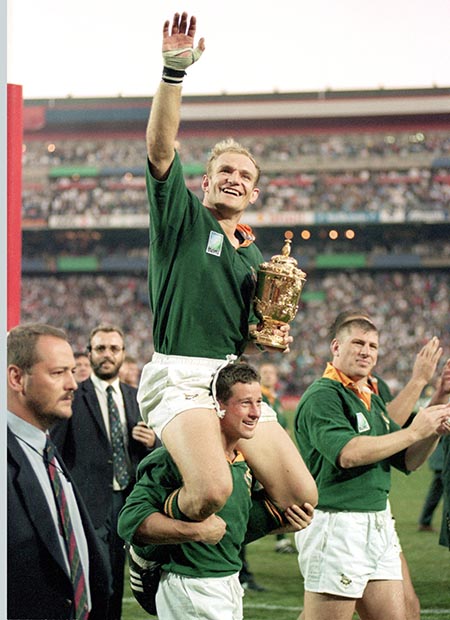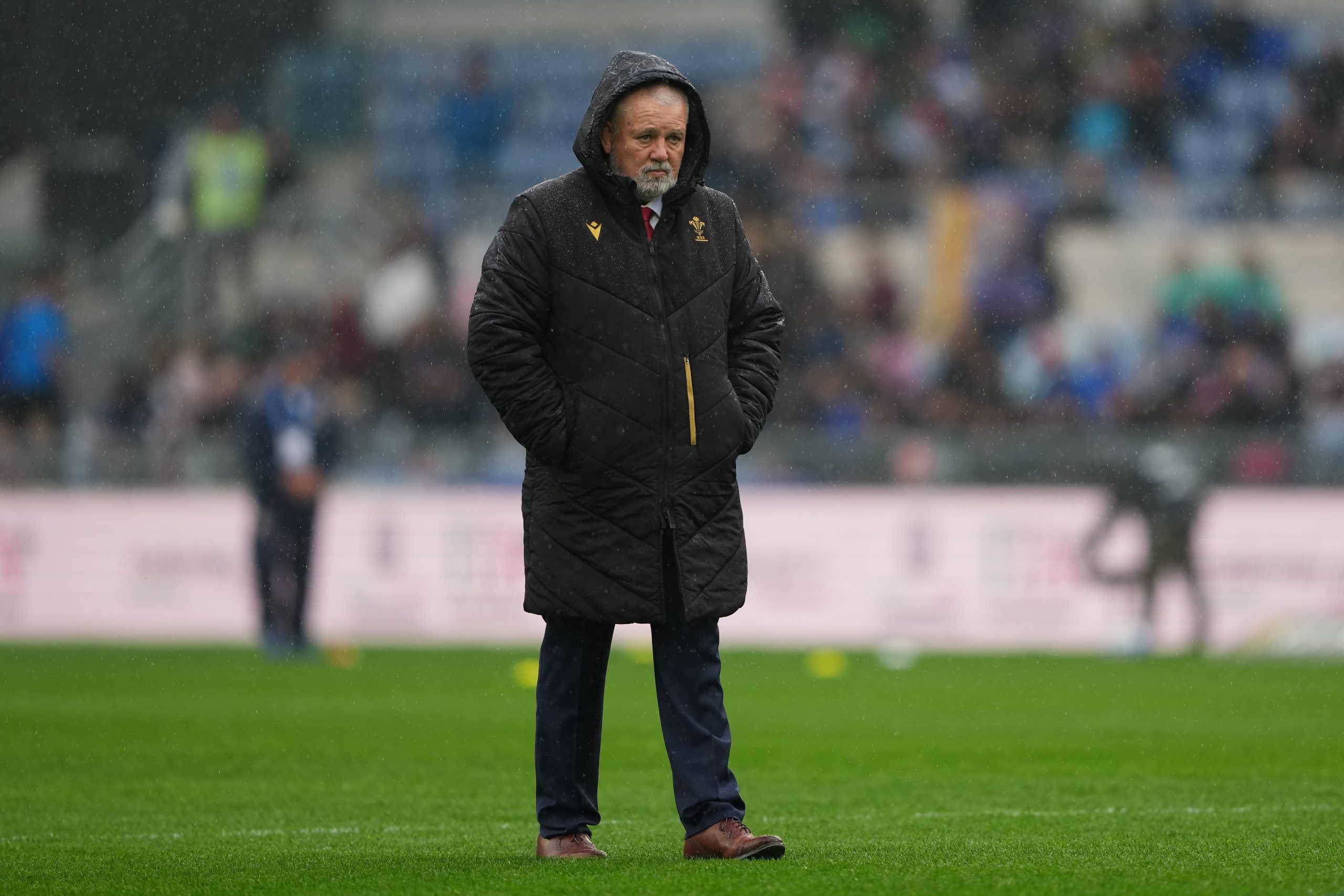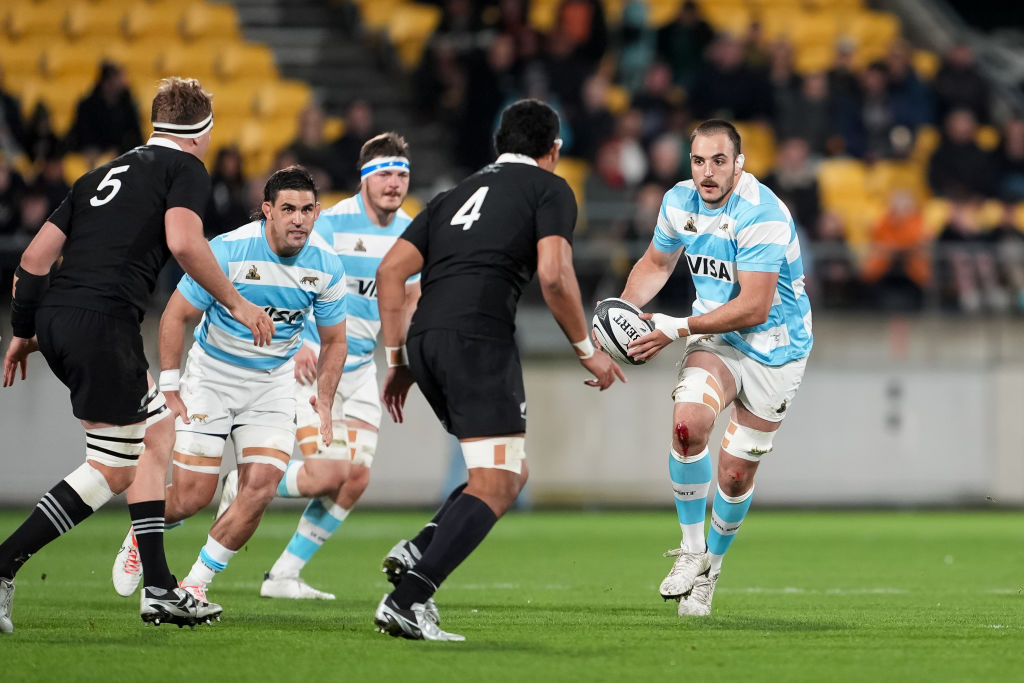
1995 Rugby World Cup winner Hennie Le Roux feels South Africa have had the best of both worlds in having their club sides playing in the Northern Hemisphere and international team in the south ahead of this year’s tournament.
Le Roux, who started in the centres for the 1995 final and played a total of 27 times for the Springboks, feels that after some getting used to it, South African players will benefit most from greater knowledge about different styles of refereeing.
“Well obviously there’s been a change with South Africa,” he said, speaking on The Rugby Paper Podcast. “Moving from the Southern Hemisphere to playing in the north has taken a big adaptation.”
“That re-alignment has brought about an acceptance in the change in the way rules are interpreted in the north versus how they are down south.
“So from that point of view, I think on a broad basis, you’ll find that South Africa have would have benefitted out of playing certain games in the Southern Hemisphere as well as experiencing the northern hemisphere referees.”
Le Roux has been impressed with the way South Africa have become more of a dangerous team in open play in the last five years, crediting former head coach and now SARU director of rugby Rassie Erasmus as being integral to the change.
“Traditionally in South Africa [rugby] was very much about grinding the game into set pieces and positioning ourselves on the field to create opportunities off that. We’ve historically relied on defence, and we’ve only seen more attacking rugby when we see the team get further ahead.
“Under Rassie and beyond there’s definitely been a change to try and create a more open, expansive flow,” he added. “I think he’s tried to make that more of a part of the general play of South African rugby and he should probably be commended for that.”
Nevertheless Le Roux feels that when the time comes, it will be the fundamental aspects of the game that will prove critical to a long stay in the tournament.

He believes that a number of teams have a good chance of winning the competition and that New Zealand, who once again head into the tournament as the bookies favourites, have often come unstuck by having specific flaws which teams can target.
“As the tournament progresses, it’s all about eliminating mistakes and doing your basics really well,” Le Roux concluded. “If you can dominate in lineouts or scrums, nail those basics and make sure your defensive pattern is not leaking, then any team has a chance in a World Cup.
“I think the capabilities of the top six teams are all very similar. It’s a question of executing correctly, picking the right options and getting those key game fundamentals under control. If you can dominate in those parts, you stand a much better chance of dictating the nature of play.”
“New Zealand have been the most consistent team year in year out, but they haven’t always capitalised on that. There comes a time, in a World Cup for example, where if you get exposed in one particular area in knockout rugby, it’s time to go.
“These are the elements that will make the World Cup so exciting.”
Stream this episode of The Rugby Paper Podcast on YouTube, Apple Podcasts, Spotify (also above), Castbox and Google Podcasts.
For exclusive stories and all the detailed rugby news you need, subscribe to The Rugby Paper website, digital edition, or newspaper from as little as 14p a day.


























You must be logged in to post a comment Login